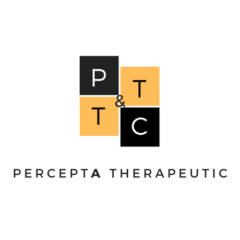Our interview series, “PerceptAInterviews” continues. Today, we are so honored and privileged to interview Erica Weinstein, MEd, NCC, LCPC, owner of Weinstein Wellness Mobile Psychotherapy. Thank you Ms. Weinstein, for sharing your thoughts, experiences, and time with us!

Erica Weinstein, M.Ed., N.C.C., L.C.P.C.
Ms. Weinstein has a Master’s degree from Loyola College in Maryland; she is a Nationally Certified Counselor (NCC), and a Licensed Clinical Professional Counselor (LCPC- Maryland). Ms. Weinstein is a remarkable young woman who owns WEINSTEIN WELLNESS Mobile Psychotherapy, an In-Home & Office Psychotherapy Service, working with individuals, couples and families. Her practice specializes in individuals with a variety of mental health issues, including Anxiety, Trauma, & Mood Related Disorders. Ms. Weinstein, will meet with you, in the comfort & convenience of your home of her office; in essence, she will work with you to arrange a location that works best with you. Ms. Weinstein considers herself a, “Turner of thoughts, challenger of perspectives, and seeker of the new & bright…”
Interview Questions by PerceptA Therapeutic and Training Center, LLC
- What drew you to become a counselor and how did you become interested in the professional? Share some of your background. The wonderment of how humans think drove me to become a therapist. I believe I was born to help others search.
- Where did you earn your Master’s Degree? What made you pick that school and what was your experience like? I earned my Med in School Counseling from Loyola College in Baltimore MD. Honestly, theirs was the first & only program I considered…felt right at the time. I was thoroughly academically challenged & overwhelmed. Happy I experienced it; overjoyed that it’s completed.
- When and why did you choose to go into private practice? Almost 2 years to the day I waded into the shaky waters of private psychotherapy practice. I had spent enough years & energy working as an underling (despite the quality of my education & experience) in the field. It was time to dance my dance, my way.
- What are some of your professional challenges in private practice and how do you successfully deal with those challenges? One challenge of operating a private psychotherapy practice is how to go about introducing myself & my services to those who may benefit. I manage this by trying everything even slightly reasonable.
Interview with Erica Weinstein-LCPC- 2-2015←Read the entire interview here.
CONTACT Ms. Weinstein:
Erica Weinstein, MEd, NCC, LCPC – Licensed Therapist & Certified Yoga Instructor for Adolescents, Adults, & Families Business Phone: 410-960-3209
Email:Erica@weinsteinwellness.com
http://www.weinsteinwellness.com/←Take a look @ Weinstein Wellness Website
**If you would like to be part of the PerceptAInterviews series, please send your request to dr.c.anah@gmail.com


